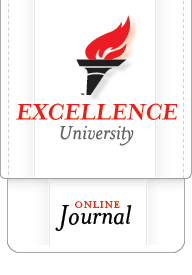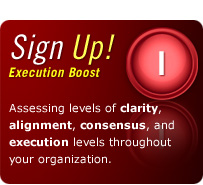Self-Mastery: What Is It, Who’s Got It, And How Do We Increase It?
April 12th, 2007
“Self-Mastery” is a concept that is repeatedly recommended as essential to leadership excellence. Our firm recently polled over 80 individuals – from CEO’s at a Fortune 500 level to high-functioning college students working at internships – on their opinions of their own levels of Self-Mastery. We found some very interesting results and wanted to share them in hopes of: (a) facilitating a robust conversation about Self-Mastery and (b) helping individuals conceptualize what Self-Mastery is, why it is so important, and how to move toward increasing it.
- What is Self-Mastery? click here to read more
- Who Participated In This Poll? click here to read more about the participants in this poll
What Did Participants Report? Now, on to the “meat and potatoes” of the poll: what did our poll participants have to say about Self-Mastery? First of all, here were the items we asked people to rate themselves on; these items represent the factors that we have found to be most strongly associated with Self-Mastery (with average scores of respondents – based on a 1-5 point scale – in parenthesis):
- I am conscious of the many opportunities to succeed that lie within myself (average score: 4.42)
- I am good at identifying and resolving the âhot buttonâ issues (topics that create anger, resentment, or doubt) within myself (average score: 3.90)
- I am skilled at increasing my positive thoughts and emotions when I would like to do so (average score: 4.06)
- I consistently identify and pursue the most meaningful goals in my life (at work and outside the office) (average score: 3.67)
- I find it easy to adjust my behaviors and thoughts to fit my needs across many situations that require both the ability to focus within myself and interact with others effectively (average score: 4)
- I consistently structure my mind and organize my environment to minimize stress and increase focus (average score: 3.52)
- I consistently create plans that are likely to succeed based on strategies that have proven to be successful in the past (average score: 3.98)
- My lifestyle is one that contributes to my energy, focus, and effectiveness levels (average score: 3.80)
- I am good at opening up enough free time for leisure and using that time to refresh and re-energize myself (average score: 3.33)
- I have solid influence over my thoughts, feelings, and actions â even when dealing with unplanned-for challenges (average score: 3.98)
As I looked over this data, my mind went immediately to the top three scores and the bottom three scores on this list. I thought a discussion about those scores – and how the results of this poll relates to my experiences researching (in much more scientifically rigorous ways than this poll) and attempting to facilitate Self-Mastery levels in my clients – might be a good place to go next.
A. The Highest Scores. The 3 highest scores above were on to what I call the “success” items (items related to achieving goals) – items I’ve seen most high level leaders truly excel in. Most leaders I interact with tend to be:
- aware of the many opportunities to succeed in life (4.42 average in this poll),
- able bring about more positive emotions and thoughts when needed (4.06), and
- skilled at flexing to fit the needs of a situation or environment (4.00).
These abilities are some of the very reasons why leaders rise to their positions. No surprises here, especially since we polled some of the more successful people we know.
B. The Lowest Scores. The 3 lowest scores above were on what I call the “satisfaction” items (items related to enjoying life). These scores were also not surprising to me, as they continuously come up as some of the greatest Self-Mastery challenges for most leaders that I’ve encountered over the past 10 years. Even the best leaders often report:
- struggling to prioritize their many goals (3.67 average in this poll),
- wishing that their minds and environments were more focused (3.52), and – perhaps most universally. . .
- not having enough satisfying leisure time (3.33).
It’s been my experience that these 3 items are all interconnected, with less ability to prioritize often leading to less focus, which in turn leaves less time for satisfying leisure.
C. How Do The Highest and Lowest Scores Relate to Each Other? My experience with leaders has led me to believe that many leaders allow their Self-Mastery strengths to create Self-Mastery weaknesses. For example:
- being able to “see opportunity everywhere” (a Self-Mastery strength), as most outstanding leaders tend to be able to do, can also lead to a less focused life (a Self-Mastery weakness); a life of chasing goals without a sense of which ones are truly essential to what they want to get done.
- being able to bring about positive thoughts and feelings when needed can lead to ignoring the leisure activities that bring about these feelings more naturally; most people who cannot influence their emotions absolutely need to put aside leisure time, while those who can bring these feelings about internally can more easily ignore leisure.
- finally, flexibility can also contribute to “flexing” out of some of the most meaningful goals in our lives – goals related to family, leisure, and truly relaxing activities.
Balancing Success and Satisfaction: How to Avoid Creating Self-Mastery Weaknesses Out of Your Strengths. The most important way, I think, to avoid creating weaknesses from strengths is not anything that you probably haven’t heard before – but might be something that you haven’t actually done on a regular basis: prioritizing opportunities and time and spending time to structure you life for more focus and satisfaction while moving toward your most critical goals.
If you agree with this need but do not actually perform this activity on a regular basis – you might want to investigate why you don’t. I’ve been collecting reasons for not doing what’s good for oneself for over 7 years now, so if you’d like to place a reason for not “doing prioritization” in the comment section below, I’d like to hear your view on this (I’ll bet you a dime that the most common reason for this is something like “I don’t have the time” – do you owe me a dime?). Below this section of this article is a link for those who are curious about how we assist people with “doing” Self-Mastery.
- How to Actually “Do” Self-Mastery. click here if you are interested in some suggestions for improving Self-Mastery
Some Final Words. Thanks to all who participated in our poll and to everyone who took the time to read this article and/or provide us with comments about either the article or the SBSS. We look forward to hearing more from you all about Self-Mastery, and hope that this article added value to your day.
Article Filed under: IV. Miscelaneous



8 Comments Add your own
1. Jonathan Branch | October 30th, 2007 at 11:51 pm
I began reading this article and being a statistical freak have to ask about how you took this poll. Is this all from one company. If so this data is already not any good. This should have been taken from a simple random sample of all fortune 500 companies with internships greater than or equal to 80. And the question asked is very important, because an opinion is being question.
2. Brian Higley | November 1st, 2007 at 1:19 pm
Jonathan
Thanks for your comment. As a fellow statistics (and science) freak, I appreciate them greatly. Let me try to clarify the difference between what this article does and what I think you are implying above.
This article represents the results of an exploratory assessment of leaders across the nation that our associates work with. This data is actually very good if one knows what it is for – beginning a conversation about these topics – and what it is not for – making scientific claims about “truth.” For example, I think your comments would be right on if we claimed that this data was from a representative sample of leaders from Fortune 500 companies or that these results were scientifically validated. For this very reason we were very careful not to make that claim in this article. Most science begins with ideas and/or dicussions – this exploratory venture falls into that category to me. If we wanted to make scientific claims, we would have to go a few steps futher with this.
To be clear: the purpose of the article was not to make a scientific claim. The purpose of the article was identified in the first paragraph:
“We found some very interesting results and wanted to share them in hopes of: (a) facilitating a robust conversation about Self-Mastery and (b) helping individuals conceptualize what Self-Mastery is, why it is so important, and how to move toward increasing it.”
Thanks for your thoughts, Jonathon!
3. Excellence Tree Journal Â&hellip | September 15th, 2008 at 3:10 pm
[…] Obviously, the ability to bring about more doing in ourselves and others has a variety of advantages in business and in life. There are many ways to increase expertise in these five critical areas; to help people attain more “doing” states of mind, we often train them to increase their “Self-Mastery” levels. Our firm recently did a poll on Self-Mastery; for more about Self-Mastery and our poll, read: Self-Mastery: What Is It, Who’s Got It, And How Do We Increase It? […]
4. Excellence Tree Journal &&hellip | February 20th, 2009 at 11:35 am
[…] In order to help people move from wishing to doing, our firm often trains individuals to increase their levels of “Self Mastery.” We recently conducted a global poll on Self-Mastery. To read more about this concept â and our Self-Mastery poll – visit: Self-Mastery: What Is It, Who’s Got It, And How Do We Increase It? […]
5. Excellence Tree Journal &&hellip | February 20th, 2009 at 11:36 am
[…] Click here to view full Self-Mastery article […]
6. Excellence Tree Journal &&hellip | February 20th, 2009 at 11:36 am
[…] Click here to view full Self-Mastery article […]
7. Excellence Tree Journal &&hellip | February 20th, 2009 at 11:36 am
[…] Click here to view full Self-Mastery article […]
8. Excellence Tree Journal &&hellip | February 20th, 2009 at 11:37 am
[…] A recent study conducted by our firm with several of America’s top leaders found that while leaders scored predictably high in a number of areas, they often scored significantly lower in identification and pursuit of their most meaningful goals, and in the ability to find quality leisure time. To read more about this study, click here. […]
Trackback this post | Subscribe to comments RSS Feed
Leave a Comment
Some HTML allowed:
<a href="" title=""> <abbr title=""> <acronym title=""> <b> <blockquote cite=""> <cite> <code> <del datetime=""> <em> <i> <q cite=""> <s> <strike> <strong>